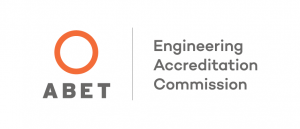Chemical Engineers develop manufacturing processes for a wide variety of applications including food, pharmaceuticals, chemicals, biotechnology and environmental technology, including creating new vaccines and antibiotics to cleaning up air and water pollution.
 UMBC’s B.S. in Chemical Engineering is accredited by the Engineering Accreditation Commission of ABET, https://www.abet.org, under the General Criteria and the Chemical Engineering Program criteria.
UMBC’s B.S. in Chemical Engineering is accredited by the Engineering Accreditation Commission of ABET, https://www.abet.org, under the General Criteria and the Chemical Engineering Program criteria.
All tracks lead to the B.S. in Chemical Engineering and require the same chemical engineering core classes and Gateway Requirements. Each track allows for specialized science courses and technical electives to better meet your career goals. Your advisor can help you decide which track is right for you.
Three tracks allow students to specialize their focus:
Traditional
prepares students for careers in industries such as chemical processing, food processing, metallurgy, energy conversion, petroleum refining and pharmaceutical production
Biotechnology & Bioengineering
prepares students who are interested in working in the biotechnology industry, pursuing graduate work in biochemical or biomedical engineering or going to medical school
Environmental Engineering & Sustainability
prepares students to apply basic chemical engineering principles in the field of environmental engineering such as cleaning up air and water pollution and managing chemical processes to minimize environmental impact
Coursework
The following documents are provided to help students develop their plan of student and ensure they are taking classes the proper sequences to graduate on time.
- Compare coursework across all tracks (.pdf)
- “Bubble Sheets” – show the order courses should be taken given the required sequence of coursework for the each track. **You must be logged into your UMBC account to access these files**
- Gateway Requirements – important requirements for first year, second year and transfer students
- CBEE Undergraduate Program Policies